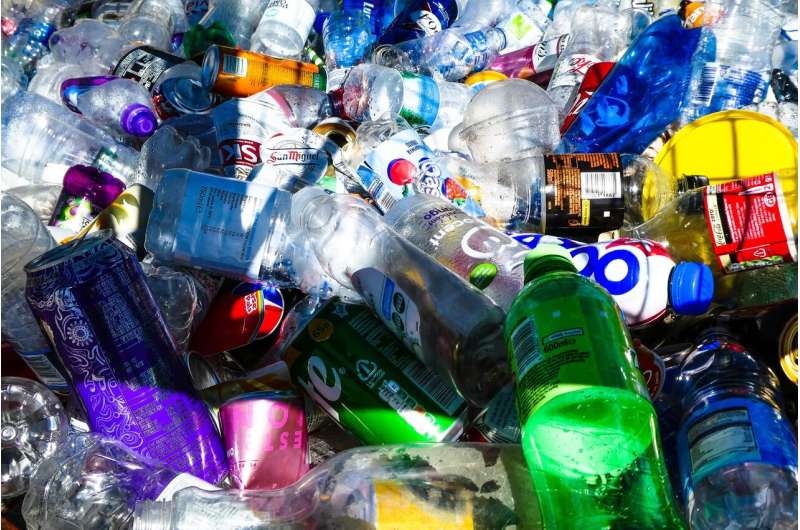CSIRO's circular economy roadmap charts path to triple job creation

The National Circular Economy Roadmap found innovation is crucial to realizing Australia's largest economic gains, which will come from designing new products and materials, including through advanced manufacturing, and in embracing new business models that will create domestic and export markets for waste streams.
This could more than triple job creation from resource recovery in Australia, where the recycling sector currently generates 9.2 jobs per 10,000 tons of waste, compared with only 2.8 jobs for the same amount of waste sent to landfill.
Increasing Australia's recovery rate by just 5 percent would add an estimated $1 billion to GDP.
The Australian Government's ban on the export of waste last year creates an opportunity for a new circular economy strategy that turns landfill into economic returns.
CSIRO chief executive, Dr. Larry Marshall, said science and technology can drive Australia's next wave of economic opportunities.
"Australia is among the world's best in advanced manufacturing and environmental research, and that unique science can turn industry and environment into partners by making sustainability profitable," Dr. Marshall said.
"Science can transform our economy into a circular one that renews and reuses what we previously discarded, and indeed a virtuous circle that creates higher paid jobs, advances new Australian technology, and protects our environment.
"We're on a mission to make it real. The practical path laid out in this roadmap is part of CSIRO's mission-led focus on using science to solve our greatest challenges while driving our economic recovery and building future resilience."
The roadmap aligns with a number of circular economy missions being developed by CSIRO and partners in industry, universities and government, including a mission to end plastic waste, a mission to transform Australian mineral commodities into higher-value products, and a mission to transition to net zero emissions.
Project leader Dr. Heinz Schandl said the roadmap was commissioned by the Federal Department of Industry, Science, Energy and Resources and developed in collaboration with 83 industry, research and government partners to shape a circular economy strategy for Australia to address fundamental environmental issues and foster regional employment.
"Our traditional 'take-make-dispose' consumption pattern is hitting two walls: ever-more-expensive primary materials, and ever-more-unacceptable ways of dealing with waste," Dr. Schandl said.
"The global pandemic has disrupted global supply chains which challenges Australia to be self-sufficient with sovereign manufacturing capability."
The roadmap identifies six elements for moving towards a circular economy of plastics, paper, glass and tires:
- Retain material through use and collection
- Upscale and innovate recycling technologies
- Innovate and collaborate in design and manufacture
- Develop markets for secondary materials and the products that use them
- Streamline nationally consistent governance
- Secure a national zero-waste culture
Lost to landfill: the hidden gems in our waste
- Plastic – $419M: Australia loses $419 million every year by not recycling PET and HDPE plastics.
- Paper – $115M: Cost savings from sending paper fiber to landfill is around $70 per ton. With 1,642 kilotonnes sent to landfill each year, that's $115 million.
- Lithium – $2.5B: Sending lithium from batteries to landfill results in a lost economic opportunity of up to $2.5 billion by 2036.
- Litter – $70M: Australia spent $70 million cleaning up dumped waste in 2016–17.
Provided by CSIRO





















